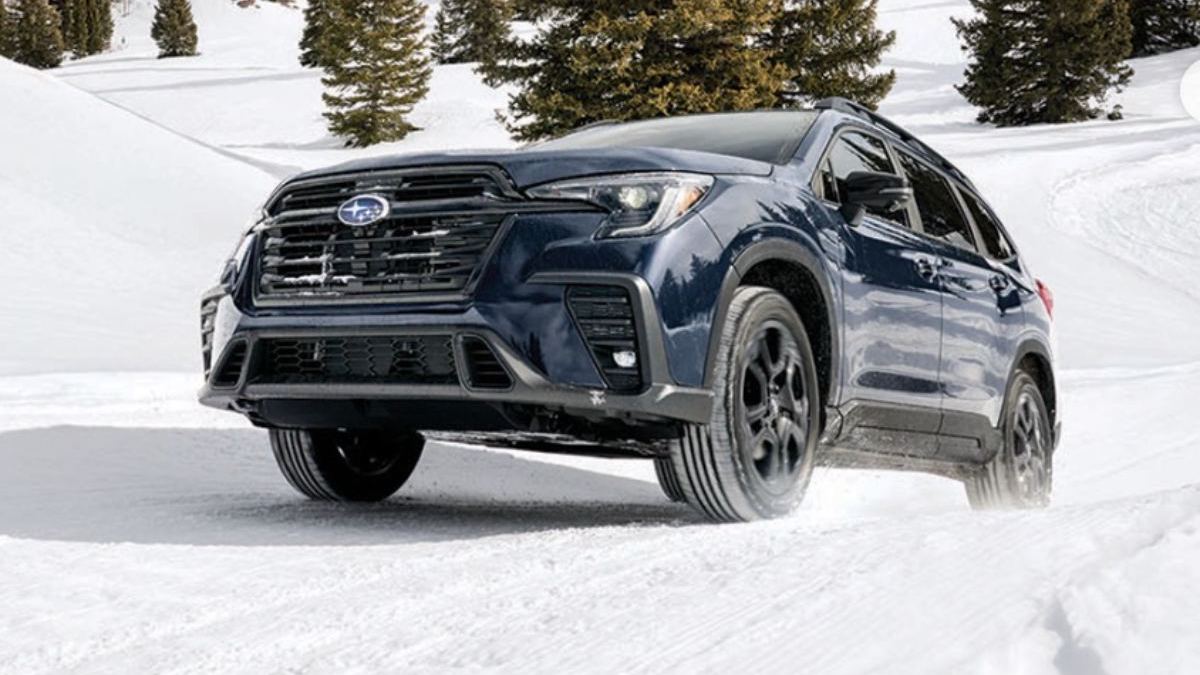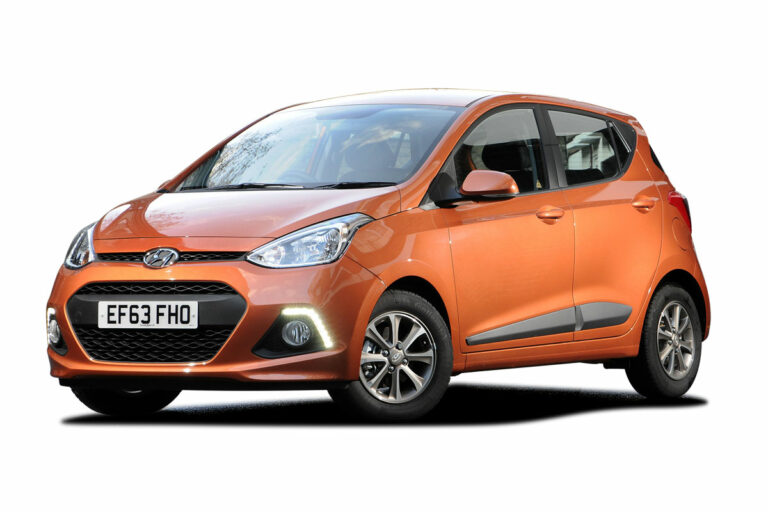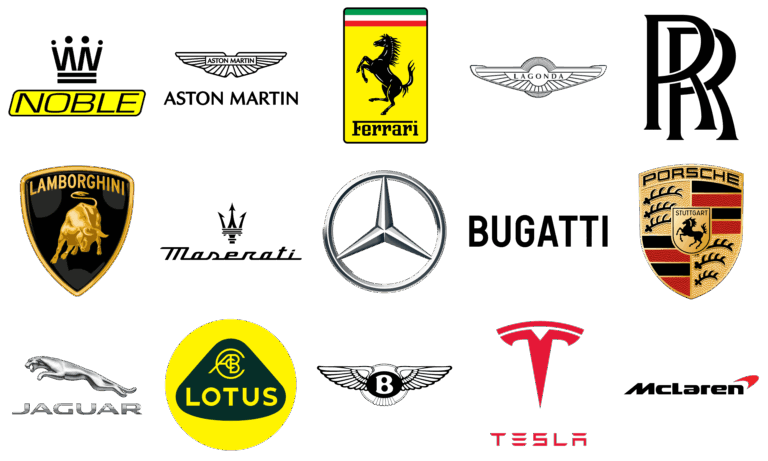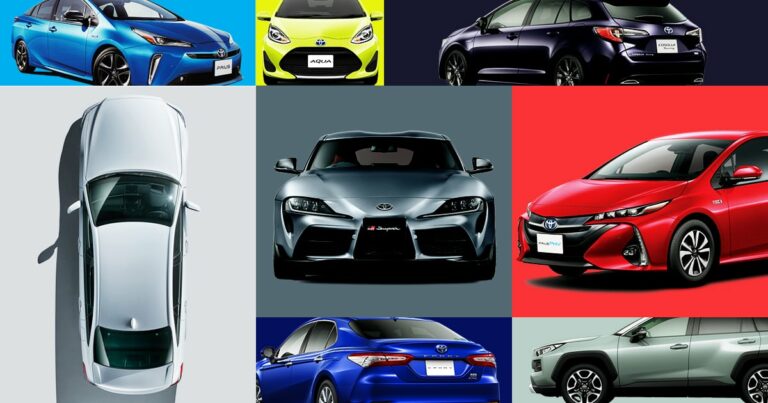What Are Good Car Brands: A Comprehensive Guide to Informed Car Buying
What Are Good Car Brands: A Comprehensive Guide to Informed Car Buying cars.truckstrend.com
Choosing a new or used car is one of the most significant financial decisions many individuals and families make. Beyond the initial excitement of a shiny new ride, a car represents a long-term commitment that impacts daily life, personal safety, and financial well-being. The question, "What are good car brands?" therefore, isn’t just about identifying popular names; it’s about understanding the complex interplay of factors that define quality, value, and satisfaction in the automotive world.
A "good" car brand is not a monolithic entity. What one person considers exemplary, another might find lacking, depending on their priorities, budget, and lifestyle. However, certain universal benchmarks emerge when evaluating automotive excellence: unwavering reliability, top-tier safety, strong resale value, innovative technology, superior driving dynamics, and consistent customer satisfaction. This article will delve into these critical aspects, providing a comprehensive guide to identifying and choosing the car brand that best aligns with your unique needs.
What Are Good Car Brands: A Comprehensive Guide to Informed Car Buying
The Pillars of a "Good" Car Brand
To truly understand what makes a car brand "good," we must dissect the core attributes that contribute to its overall reputation and owner satisfaction.
1. Reliability and Durability: The Foundation of Trust
Perhaps the most crucial factor for many buyers, reliability refers to a vehicle’s ability to operate consistently without unexpected breakdowns or frequent repairs. Brands renowned for reliability often utilize proven engineering, high-quality components, and meticulous manufacturing processes.
- Key Indicators: Low incidence of unscheduled maintenance, fewer recalls, and a strong track record in long-term ownership studies (e.g., J.D. Power Vehicle Dependability Study, Consumer Reports reliability surveys).
- Examples: Toyota, Honda, and their luxury counterparts, Lexus and Acura, consistently rank at the top for long-term dependability, leading to lower ownership costs and greater peace of mind.
2. Safety Features and Performance: Protecting What Matters
A good car brand prioritizes occupant safety, both through robust structural integrity and advanced preventative technologies.
- Key Indicators: High ratings in crash tests conducted by independent organizations like the National Highway Traffic Safety Administration (NHTSA) and the Insurance Institute for Highway Safety (IIHS) in the U.S. Also, the inclusion of comprehensive Advanced Driver-Assistance Systems (ADAS) such as automatic emergency braking, lane-keeping assist, blind-spot monitoring, and adaptive cruise control.
- Examples: Volvo has long been synonymous with safety innovation. Subaru, Mercedes-Benz, and Genesis also consistently achieve high safety ratings across their lineups.
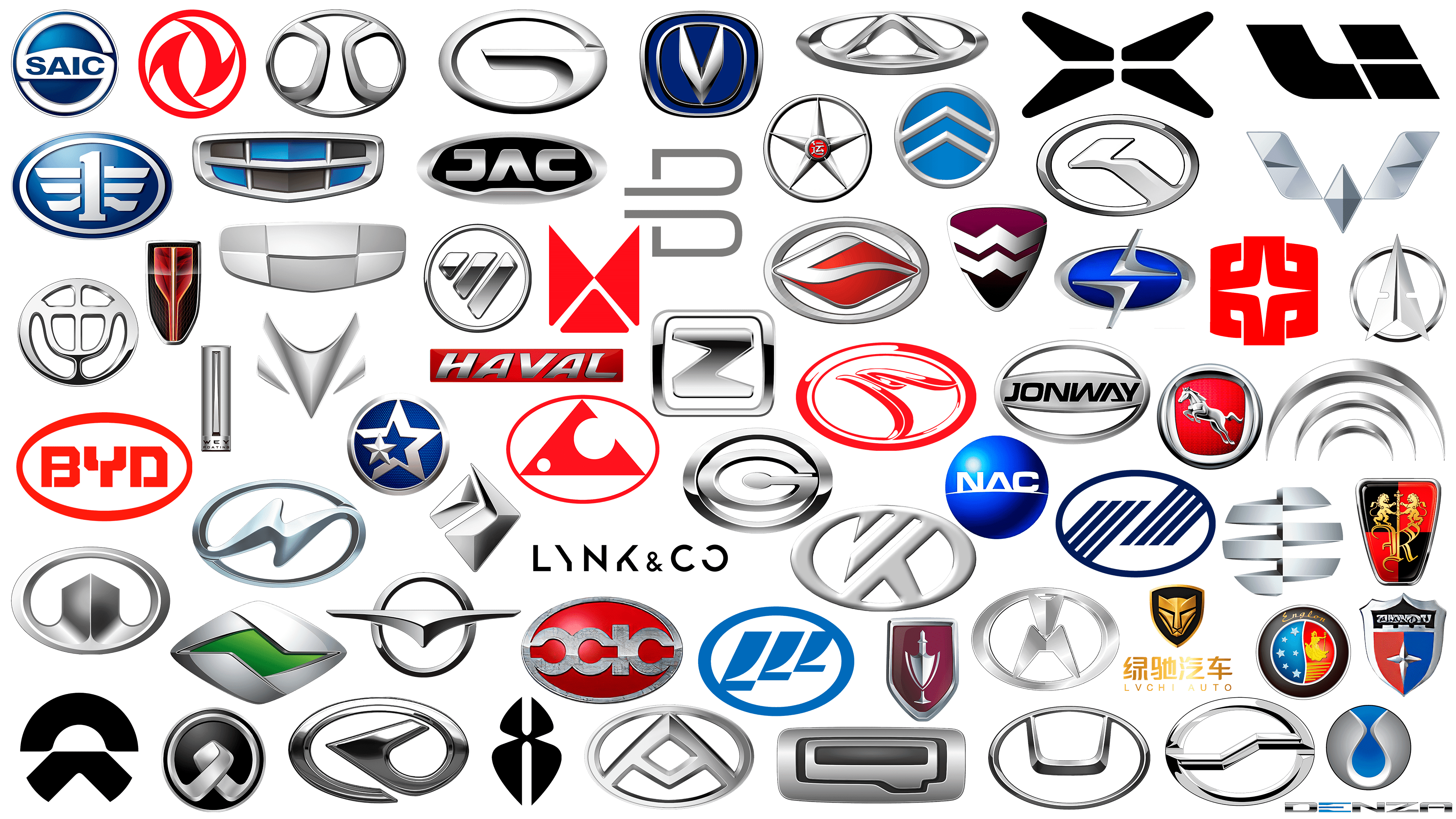
3. Value for Money and Resale Value: A Smart Investment
While initial purchase price is a factor, true value encompasses the total cost of ownership over time, including insurance, fuel, maintenance, and most significantly, depreciation.
- Key Indicators: A strong resale value means the vehicle holds a significant portion of its original worth when you decide to sell or trade it in. Brands with high demand, proven reliability, and strong brand perception tend to depreciate slower.
- Examples: Toyota, Honda, Subaru, and Lexus are renowned for their exceptional resale values, making them financially sound long-term investments.

4. Performance and Driving Experience: Beyond the Commute
For many, a car is more than just transportation; it’s about the joy of driving. This aspect encompasses engine power, handling, ride comfort, and overall refinement.
- Key Indicators: Responsive steering, well-tuned suspension, adequate acceleration, and a quiet, comfortable cabin. This can vary widely depending on the vehicle type (sports car vs. family SUV).
- Examples: Brands like BMW, Audi, Mercedes-Benz, and Porsche are celebrated for their engaging driving dynamics and premium feel. Mazda also earns praise for making even its mainstream vehicles enjoyable to drive.
5. Innovation and Technology: Driving the Future
In a rapidly evolving automotive landscape, a good car brand embraces technological advancements, from intuitive infotainment systems to cutting-edge electric vehicle (EV) powertrains.
- Key Indicators: User-friendly interfaces, seamless smartphone integration (Apple CarPlay, Android Auto), advanced connectivity features, and a commitment to developing sustainable and efficient propulsion systems.
- Examples: Tesla is a pioneer in EV technology and software-centric vehicle design. Hyundai and Kia have also made significant strides in EV development and infotainment systems.
6. Customer Satisfaction and Brand Reputation: The Human Element
Beyond objective metrics, how owners feel about their vehicles and the brand’s service experience speaks volumes.
- Key Indicators: High scores in customer satisfaction surveys (e.g., J.D. Power Customer Service Index), positive owner reviews, and a reputation for excellent after-sales support.
- Examples: Lexus consistently ranks highly for customer service, creating a premium ownership experience that extends beyond the vehicle itself.
Categories of Good Car Brands – Finding Your Fit
Different brands excel in different niches. Understanding these categories can help narrow down your search.
- Economy/Commuter Brands: These prioritize affordability, fuel efficiency, and low running costs. They are perfect for daily commutes and budget-conscious buyers.
- Examples: Toyota, Honda, Hyundai, Kia
- Mid-Range/Family Brands: Offering a balance of space, features, safety, and value, these brands cater to families and those needing versatility.
- Examples: Subaru, Mazda, Volkswagen, Ford, Chevrolet
- Luxury Brands: Defined by premium materials, advanced technology, superior comfort, and often higher performance and prestige.
- Examples: Lexus, BMW, Mercedes-Benz, Audi, Genesis, Acura, Infiniti
- Performance/Sports Brands: Focused on exhilarating driving dynamics, speed, and handling.
- Examples: Porsche, Corvette (Chevrolet), BMW M, Mercedes-AMG
- Electric Vehicle (EV) Innovators: Leading the charge in sustainable transport with a focus on range, charging infrastructure, and unique EV technologies.
- Examples: Tesla, Rivian, Lucid, Polestar, Hyundai Ioniq, Kia EV
How to Choose a Good Car Brand for You – A Practical Guide
Identifying "good" brands is the first step; selecting the best one for you requires a personalized approach.
-
Define Your Needs and Budget:
- Budget: Be realistic about what you can afford, considering not just the purchase price but also insurance, fuel, maintenance, and potential interest on loans.
- Lifestyle: Do you commute solo, carpool, transport a large family, or need off-road capability?
- Usage: How many miles will you drive annually? What kind of terrain?
- Features: What are your must-have features (e.g., AWD, specific safety tech, infotainment)?
-
Research, Research, Research:
- Reliability & Safety Ratings: Consult independent sources like J.D. Power, Consumer Reports, NHTSA, and IIHS.
- Owner Reviews: Read what current owners say about their vehicles – often found on reputable automotive sites, forums, and YouTube channels.
- Total Cost of Ownership (TCO): Use online calculators to estimate the full financial impact of owning a specific model over 5 years, including depreciation.
-
Test Drive Extensively:
- Never buy a car without a thorough test drive. Drive on various road types (city, highway, bumpy roads).
- Pay attention to ride comfort, noise levels, visibility, seat comfort, and the ease of using controls and infotainment.
- Bring family members who will frequently be in the car to get their input on space and comfort.
-
Consider Dealership Experience and After-Sales Service:
- A good brand should be backed by a good dealership network. Research local dealer reputations for sales and service.
- Proximity to a reputable service center can be a significant convenience.
-
Think About Future-Proofing:
- Consider how long you plan to keep the car. Does it have features that will remain relevant?
- If you’re open to EVs, consider charging infrastructure in your area.
Navigating Potential Challenges & Pitfalls
Even with the best intentions, car buying can present challenges:
- Brand Loyalty vs. Objectivity: Don’t let past positive experiences with a brand blind you to potentially better options from competitors. Be open-minded.
- Misleading Marketing: Car advertisements are designed to excite. Focus on independent reviews, data, and your personal experience during test drives, not just glossy brochures.
- Overspending on Unnecessary Features: Be disciplined. It’s easy to get caught up in add-ons. Stick to your budget and essential features unless you have significant leeway.
- Ignoring Depreciation: Some vehicles, especially luxury models or those with rapidly evolving technology, can lose value quickly. Research resale values before committing.
- The "New" Factor: While exciting, brand-new models or entirely new brands may not have established reliability track records. Sometimes it’s wiser to wait for a few model years.
What Are Good Car Brands: Comparative Price & Value Table
This table offers a comparative overview of different categories of "good car brands" based on key strengths, typical price ranges for new vehicles, and target buyers. It aims to provide a holistic view of value rather than just a price list, as "good car brands" themselves are not single, purchasable items.
| Brand Category | Example Brands | Key Strengths | Average Price Range (New) | Typical Target Buyer |
|---|---|---|---|---|
| Economy/Value | Toyota, Honda, Hyundai, Kia | Reliability, Fuel Efficiency, Low Total Cost of Ownership (TCO), Practicality | $20,000 – $35,000 | Budget-conscious, Commuters, First-time buyers |
| Mid-Range/Versatile | Subaru, Mazda, Volkswagen, Ford (mainstream) | Safety, AWD (Subaru), Driving Dynamics (Mazda), Balanced Features & Value | $28,000 – $45,000 | Families, Adventure seekers, Value-conscious drivers seeking more |
| Premium/Entry-Luxury | Acura, Infiniti, Volvo, Genesis | Advanced Tech, High Safety Standards, Refined Interiors, Strong Warranty (Genesis) | $40,000 – $65,000 | Aspiring luxury, Safety-focused, Tech enthusiasts, Brand prestige |
| Luxury/Performance | Lexus, BMW, Mercedes-Benz, Audi, Porsche | Superior Comfort, High Performance, Prestige, Cutting-edge Technology, Driving Pleasure | $55,000 – $100,000+ | Status-driven, Performance enthusiasts, Comfort seekers, Discerning buyers |
| Electric Vehicle (EV) | Tesla, Rivian, Lucid, Polestar | Innovation, Long Range, Rapid Performance (Tesla), Sustainability, Lower Running Costs | $40,000 – $150,000+ | Early adopters, Environmentally conscious, Tech-forward, Urban dwellers |
Note: Price ranges are approximate for common models and trims, and can vary significantly based on specific model, configuration, market conditions, and incentives.
Frequently Asked Questions (FAQ) About Good Car Brands
Q1: What is the most reliable car brand?
A1: While reliability rankings can fluctuate year-to-year and across different studies, Toyota and its luxury division, Lexus, consistently rank at or near the top for long-term dependability and low maintenance costs. Honda and Mazda also frequently score very well.
Q2: Which car brands have the best safety ratings?
A2: Volvo has a long-standing reputation for safety innovation. Other brands that consistently earn top safety picks from organizations like the IIHS (Insurance Institute for Highway Safety) include Subaru, Mercedes-Benz, Audi, and Genesis.
Q3: Are luxury cars worth the extra cost?
A3: It depends on your priorities. Luxury cars typically offer superior comfort, advanced technology, higher performance, and premium materials. If these attributes, along with brand prestige and exceptional customer service, are important to you and fit your budget, they can be worth the investment. If you prioritize pure utility and low cost of ownership, a mainstream brand might offer better "value."
Q4: How often should I buy a new car?
A4: There’s no fixed rule. Many people buy a new car every 3-5 years to stay under warranty and enjoy new features. However, modern cars are built to last, and keeping a reliable vehicle for 10-15 years or more often makes the most financial sense, as the steepest depreciation occurs in the first few years.
Q5: Is it better to buy a new or used car from a good brand?
A5: Both have merits. New cars offer the latest technology, full warranty coverage, and customization. Used cars, especially those a few years old from a reliable brand, offer significant savings due to depreciation, allowing you to get more car for your money. For "good car brands," their reliability often translates well into the used market.
Q6: How are electric vehicles impacting the definition of a "good" car brand?
A6: EVs are shifting the focus. A "good" EV brand now also excels in battery technology, range, charging infrastructure, intuitive software, and sustainable manufacturing practices. Traditional metrics like engine performance are being replaced by acceleration, charging speed, and range anxiety solutions.
Conclusion
The quest for "what are good car brands" is ultimately a deeply personal journey. While objective metrics like reliability, safety, and resale value provide a crucial foundation, the best car brand for you is the one that perfectly aligns with your budget, lifestyle, and driving preferences.
By understanding the core pillars of automotive excellence, exploring different brand categories, and diligently following a practical selection guide, you can navigate the vast automotive market with confidence. Remember to prioritize research, never skip a test drive, and consider the total cost of ownership. The goal is not just to find a vehicle that gets you from point A to point B, but one that brings satisfaction, safety, and reliability to your life for years to come. Your informed decision will lead you to a car that truly serves your needs, making it, by definition, a "good" car from a "good" brand.
